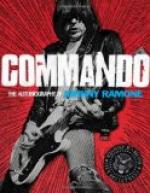In the southern half-circle the sun and hands move in opposite directions, therefore one must point the figure XII. to the sun, and then divide the acute angle between the figure XII. and the small hand to find the meridian.
In this way one can at any time find out the direction one has taken. But everyone has not always a good watch, and the sun sometimes hides behind the clouds. Then it is better to have a good compass—but better still not to lose one’s way.
Besides such simple articles as a pocket-knife, a water-bag, etc., which are indispensable to a traveller in our country, everyone ought to carry with him a good plaster, a nosebag, and some snake poison; maize (mealies) for his horse, the cheapest and most strengthening food that we know of, can always be carried in the nosebag. Snake poison prepared by a good Kaffir doctor is the only cure for snake-bites or the bite of any poisonous insect. The Kaffirs prepare it from some (to us) unknown shrub, and from the poison of the most venomous snake, which they make into a powder. This powder is used as an antidote by swallowing a small dose—enough to cover the point of a pocket-knife—and also by applying some to the bite, after first having cut an opening into the bitten part with a pocket-knife. Some people protect themselves against the poison of a snake-bite by regularly swallowing some of the poison and vaccinating themselves with it. One can even protect one’s self in this way against the bite of the poisonous file-snake of the Boschveld—a snake the shape of a three-cornered file, sometimes from 3 to 4 feet long. It is a fact that the person whose body is proof against the poison of a snake-bite is never bitten, as he is feared by snakes. Formerly I doubted it, but I have myself seen people who have made themselves proof against a bite in this way, and I have also heard it from people in whom I have the utmost faith.
Alcohol is also a good antidote, provided one takes it immediately and in such quantities that it goes to the head. I would recommend everyone always to take a small quantity of brandy with him on commando, if experience had not taught me that some take even a mosquito-bite as an excuse to ‘take a drop,’ and I am against that on principle.
Often while loading my horse the thought struck me whether the poor brute ever had a wish to protest, ‘Surely this is becoming too bad!’ and that reminds me that one must be very careful not to overload. The knapsack must not be filled with kaboe mealies (roasted maize) for one’s self, while the nosebag of the poor horse remains empty.
More than one prisoner of war has bitterly regretted that he did not take his horse’s power of endurance into greater consideration. Now I must take up the thread of my tale.




